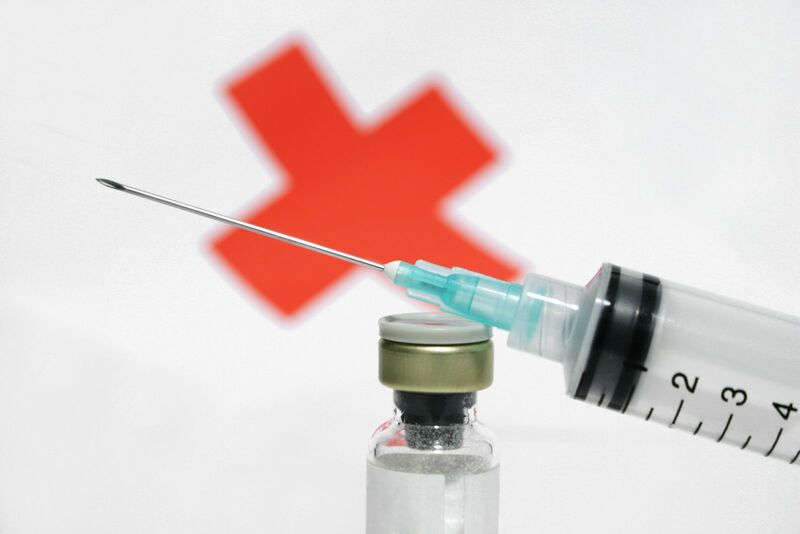
Let’s face the facts: so far this century, investing money into GSK PLC (GSK) was like sending it into a black hole. The pharma stock was where money went to die.
That was due to years of poor M&A, as well as financial engineering, at the expense of R&D. That became evident when the global COVID-19 pandemic presented the vaccine powerhouse an opportunity to turn the ship around. But instead, GSK failed to grab a position in the COVID vaccine market.
At the end of last century, GSK stock was trading at $56.88 a share. Today, it is about $42 a share - although investors did receive one share of its over-the-counter meds spinoff, Haleon PLC (HLN), for each of their GSK shares.
But now, in 2024, light is appearing at the end of a very long tunnel for shareholders. In other words, GSK is finally investable again.
In fact, buoyed by the successful roll-out of its shingles and RSV vaccines, CEO Emma Walmsley recently raised guidance for sales growth, adjusted profit growth and profit margins. The company now anticipates 2024 revenue growth of 5% to 7% and adjusted operating profit growth of 7% to 10%.
Let’s take a closer look at why the stock is hitting 52-week highs recently.
GSK: A Vaccine Powerhouse Once Again
For a number of years, investors have been concerned about the relative weakness of the company’s drug development pipeline when compared with its pharma peers - especially since it will have to contend with the loss of patent exclusivity on dolutegravir, one of the key treatments in its HIV portfolio. But these worries are beginning to recede, given the performance of GSK’s new RSV vaccine, Arexvy, in its latest earnings results.
On Jan. 31, GSK reported higher-than-expected sales of Arexvy. The vaccine brought in $1.5 billion, even though it was only launched in the second half of 2023. Overall, the company’s fourth-quarter earnings report showed its vaccine business grew by 24% in 2023, compared to the prior year. Arexvy’s launch played a major role in that growth, along with continued adoption of GSK’s shingles vaccine Shingrix, where sales jumped 17%.
Keep in mind that it was only last May when Arexvy received approval from the FDA in adults 60 years or older, becoming the first preventive vaccine for RSV, or respiratory syncytial virus.
GSK said it has won about a two-thirds share of the U.S. market, where almost all Arexvy sales have been recorded. The vaccine is available in all major retail pharmacies and, according to GSK, so far about 6 million of the roughly 83 million U.S. adults 60 years or older have received the vaccine.
On the recent earnings call, GSK’s chief commercial officer, Luke Miels, said: “We remain very confident this vaccine can achieve more than £3 billion ($3.78 billion) in peak year sales over time.”
GSK’s Bright Future
In other words, a significant untapped market opportunity remains.
The FDA will decide this year on recommending the vaccine for use by 50- to 59-year-olds, which — along with rollouts across Europe and Japan — will help the company towards reaching that long-term target for Arexvy.
The company today also has a significant drug pipeline. As of the end of 2023, GSK had 71 vaccines and specialty medicines in clinical development, including 18 in the third and final trial stage. This should go some way towards assuring investors about its pipeline.
I think that Wall Street has underestimated the transformation GSK has been undergoing. It demerged its consumer health business, Haleon. It has an incredibly strong vaccine business, which is growing by leaps and bounds - thanks to the Shingrix and Arexvy vaccines. And GSK has strong positions in the HIV and respiratory sectors.
Bear in mind that vaccines can be a very lucrative business. Vaccines have a very long duration. Once a company gets an entrenched position in a specific disease sector, it is very hard to take away its market share. There is not the same patent cliff as you get with most drugs.
Of course, GSK still has a legal black cloud over it because of the Zantac lawsuits. The litigation is about whether the heartburn drug Zantac is potentially carcinogenic. But when that sort of litigation came to trial, cases were thrown out due to weak evidence. So Zantac is becoming less of an issue for the company.
When you add up all the pluses and minuses, you have a business that is well-positioned for the long term, is very lowly rated by Wall Street, generates good cash flow, and is not particularly sensitive to whatever the economy is doing.
That makes GSK stock a buy anywhere under $45.








